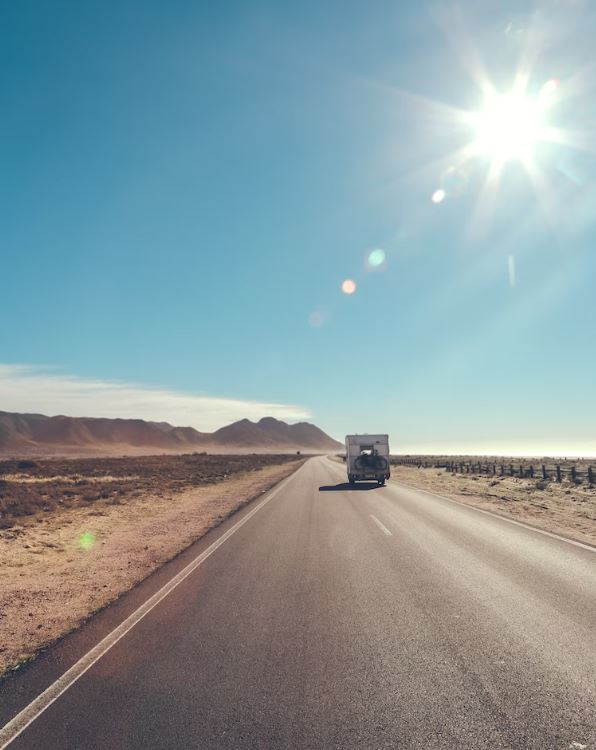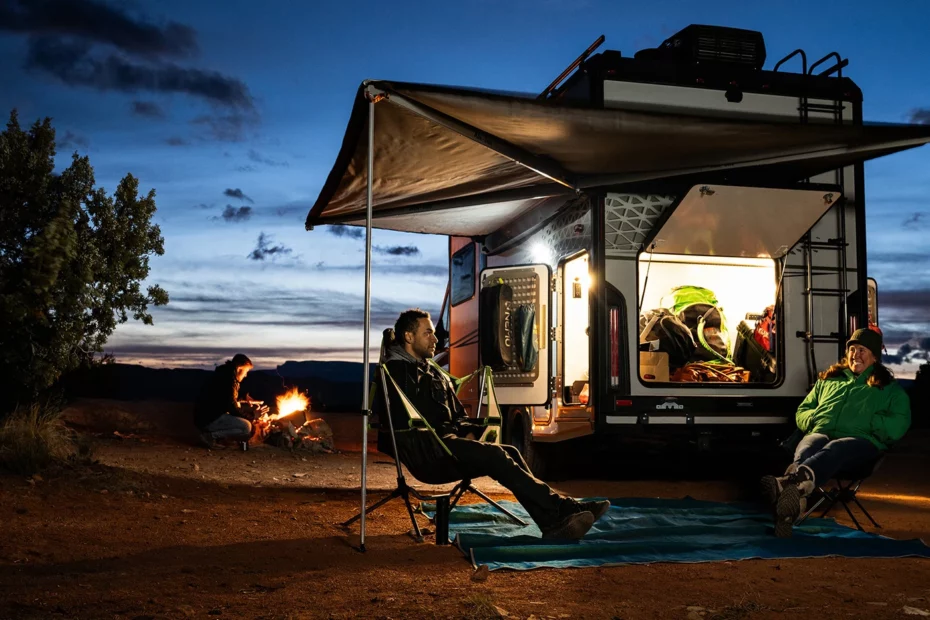The brief response is that typically RVs survive for nearly 15 years or 170,000 miles, whichever arrives first. However, the answer is not that straightforward. This figure can differ depending on the type of your RV, how well it is maintained, and a few other variables. For further information on the various classes of RVs, please refer to the RV classes explained.
What is the typical duration of use for a Class A Motorhome?
Class A Motorhomes are the largest among the three classes of motorhomes. They resemble tour buses and are popular for full-time living or camping, providing ample space. However, they also tend to be the most costly type of motorhome. With proper maintenance and regular upkeep, the average lifespan of a Class A motorhome should be roughly 170,000 miles. To learn more about the features of Class A motorhomes, refer to our in-depth
What is the expected lifespan of a Class B Motorhome?
Class B motorhomes, also known as campervans, are similar in size to a regular van or slightly larger. They are more affordable and easier to handle than other types of motorhomes. When properly maintained, they can last for around 15 years or 170,000 miles, and some can even last longer. The disadvantage of Class B motorhomes is their limited capacity to accommodate people, making them ideal for solo travelers or small families. If you are traveling with more than three people, you may need to consider a larger motorhome.
What is the typical lifespan of a Class C Motorhome?
The Class C Motorhome is often referred to as the “just right” option. They are larger than Class B motorhomes but not as big as Class A motorhomes. They resemble trucks with an additional “attic” section that sits on top of the truck cab, and the living area is situated in the back. Compared to Class A motorhomes, they are less expensive but offer more space than Class B motorhomes. With proper maintenance and swift resolution of any issues, they can last for approximately 170,000 miles.

What is Considered Good Mileage for a Used RV?
While it’s essential to consider mileage when purchasing a used RV, it should not be the only factor you take into account. A motorhome with low mileage but inadequate maintenance could be a worse investment than one with higher mileage but excellent upkeep. Before making a purchase, it’s critical to conduct a thorough inspection of the RV and ask the seller for maintenance records. If necessary, consider hiring a professional to inspect the RV before purchasing it, as it can save you from investing in a problematic RV or help you buy an older RV for a great price. Additionally, understanding the best time to buy an RV can help you get the best deals.
How to Increase the Longevity of Your RV: Tips and Tricks
An RV is a unique combination of a vehicle and a house, and maintaining both systems is essential for its longevity. Here are some tips and tricks to help you increase the lifespan of your RV:
1.Regular Maintenance: Regular maintenance is essential to ensure your RV is in good condition. You should perform routine inspections, change the oil and filters, check the brakes, and maintain the tires. Neglecting any of these can cause damage that may shorten the lifespan of your RV.
2.Keep It Clean: Keeping your RV clean is essential to avoid corrosion and rust, especially if you travel in areas with harsh weather conditions. Clean the exterior regularly and use appropriate products to maintain the shine and prevent damage.
3.Store It Properly: Proper storage of your RV is crucial to prevent damage from the elements. If possible, store your RV in a covered storage unit or garage. If you need to store it outside, invest in a quality RV cover to protect it from the elements.
4.Upgrade the Interior: Upgrading the interior of your RV can also help prolong its lifespan. Replace old or worn-out components such as furniture, appliances, or plumbing fixtures, as they may cause damage to the RV and shorten its lifespan.
5.Follow the Owner’s Manual: Following the owner’s manual is essential to ensure that you are using your RV properly. It contains valuable information on how to maintain and operate your RV, including recommended service intervals and procedures.
By following these tips, you can increase the longevity of your RV, ensuring you can enjoy it for many years to come.
Rv Chassis Maintenance
Maintaining your RV is crucial to ensuring its longevity, and this includes regular vehicle maintenance. RVs require specific care and attention due to their size and the unique combination of vehicle and home systems. Here are some essential maintenance tasks to keep your RV in top condition:
- Regular engine maintenance: Just like any vehicle, your RV’s engine needs regular maintenance. Schedule routine check-ups for oil changes, fluid replacements, and fuel injections. Regular engine cleaning can also help to prevent issues.
- Tire maintenance: Tires are a critical component of your RV’s safety and performance. Regularly check tire air pressure, and rotate tires as needed. Replace tires when they become worn or damaged.
- Brake maintenance: Proper brake function is essential for safe RV operation. Inspect brake pads regularly and replace them as necessary.
- Battery maintenance: RV batteries can drain quickly, especially if they are not regularly charged or maintained. Make sure to charge your RV batteries regularly and keep them clean.
- Plumbing and electrical systems maintenance: RVs have complex plumbing and electrical systems that require regular maintenance. Check for leaks, and replace any damaged or worn-out parts. Inspect and test all electrical systems to ensure proper function.
By scheduling routine maintenance for your RV, you can prevent costly repairs and avoid unexpected breakdowns. It’s essential to keep your RV in top condition to ensure your safety and enjoyment while on the road. Don’t overlook the importance of regular maintenance for your motorhome!
Rv Interior Living Maintenance
Maintaining the living area of your RV is just as important as maintaining its mechanical systems. Here are some tips to keep your living space in good working condition:
- Lubricate slide-outs: Regularly lubricate slide-outs to keep them working smoothly. This helps prevent them from sticking or getting jammed.
- Protect rubber weather sealing: Apply UV protectant spray on rubber weather sealing around slide-outs. This helps prevent cracks and leaks in the sealing.
- Keep an RV roof patch kit: It’s important to have an RV roof patch kit on hand for leaks. This can help you fix any leaks quickly and prevent water damage to your living area.
- Use a surge guard: Use a surge guard between your RV and power outlet to prevent appliance damage. This helps protect your appliances from electrical surges and other damage.
- Use motorhome toilet chemicals: Use motorhome toilet chemicals every week or two to break down toilet paper and waste while minimizing odors. This helps keep your toilet clean and odor-free.
- Empty the black tank regularly: Empty the black tank when it’s at least 3/4 full. This prevents buildup and helps keep your RV’s sewage system in good condition.
- Wipe and dry shower area: After using the shower, wipe and dry the shower area to prevent mildew. This helps keep your shower clean and prevents mildew growth.
- Clean shower and sink after each trip: Clean the shower and sink after each trip and look for leaks or cracks. Repair those immediately to prevent bigger leaks.
- Wash and wax your RV: Wash your RV regularly after a trip (or during, if it’s a long one) and wax it regularly to protect the exterior. This helps maintain the appearance of your RV and protects it from the elements.
How To Properly Store Your Rv
Before storing your RV, it’s important to properly prepare it for a period of inactivity. By taking the time to follow a checklist of essential steps, you can ensure that your RV stays in good condition and is ready for your next adventure. Here’s what you need to do before storing your RV:
1, Clean the RV thoroughly
Before storing your RV, it’s important to give it a good cleaning. This includes cleaning the interior and exterior, as well as any appliances or equipment. A clean RV not only looks better, but it can also prevent the buildup of dirt, dust, and debris that can damage your RV over time.
- Empty and clean the holding tanks
Emptying and cleaning the holding tanks is a must before storing your RV. Leaving waste in the tanks can lead to unpleasant odors and potentially harmful bacteria. Make sure to use an RV-specific cleaner and follow the manufacturer’s instructions for cleaning the tanks. - Check the tires
Proper tire maintenance is crucial for any vehicle, and RVs are no exception. Before storing your RV, check the tire pressure and inflate as necessary. You should also inspect the tires for any signs of damage, such as cuts or bulges, and replace them if necessary. - Protect the RV from the elements
Storing your RV outside can expose it to the elements, such as rain, snow, and sunlight. To protect your RV, consider covering it with a specialized RV cover. This can help prevent damage from UV rays, moisture, and other environmental factors. - Drain the water system
To prevent the water system from freezing and causing damage, you’ll need to drain all the water from your RV’s pipes and tanks. Use compressed air to blow out any remaining water, and make sure to remove any water filters. - Disconnect and charge the battery
Disconnecting the battery can prevent it from draining during storage. If you plan on storing your RV for an extended period, you may also want to consider using a battery tender or charger to keep the battery charged. - Check for pests
Before storing your RV, it’s important to make sure it’s free of any pests, such as mice or insects. Seal any openings or cracks where pests could enter, and consider using traps or repellents to keep them away.
By following this checklist, you can properly prepare your RV for storage and ensure that it stays in good condition until your next adventure.
Check Out The History Of WInnebago Motorhomes Ready to Special Thanks To Cannons Rv Repair For Answering Some Of Our Questions. CHeck out their Website Here for Rv Repair Cannons Rv Repair
Also We Wanted To Thank World Of Rv Parts For Answering Some Questions As Well.
